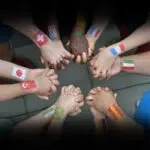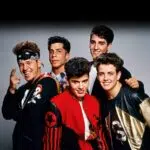Fashion Revolutionary Day is held on April 24 every year. On this day people join forces to help direct the future of the fashion industry. We do this by steering campaigns and using our social media influence to call on our favorite fashion brands. It may seem like a simple question, but it promotes transparency in the fashion industry and encourages a dialogue that helps reform practices that are not sustainable. The first Fashion Revolution Day took place on April 24, 2014, since then, the movement has led to Fashion industry reforms in nearly a hundred countries across the globe.
History of Fashion Revolution Day
It took a calamity of epic proportions for us to come together as a global community to curate a more ethical fashion industry and give birth to the fashion revolution. On April 24, 2013, in Dhaka Bangladesh, an eight-story garment factory building known as Rana Plaza collapsed resulting in over 1,300 plus deaths of men, women, and children, inflicting over 2,500 injuries and leaving at least 800 children orphaned. This unfortunate event will remain one of the most unpleasant disasters in industrial design and fashion history.
Over the years, the lack of transparency in the fashion industry was not under public scrutiny. The supply chain is quite complex and vague, millions of workers are exploited and are working obscene amounts of hours for insufficient wages in inadequate conditions. As we watched each limp body being carried out from the rubbles after the disaster, it shocked our realities to the core and we were awakened to the existence of the fast fashion industry and spotlighted the miserable conditions that many people in the textile and garment industry are working in.
Fashion Revolution Day has been nine years running now. It initially started as an online and social media movement where people around the world were encouraged to ask fashion and clothing brands ‘Who made my clothes?’, using the hashtag #WhoMadeMyClothes. Nowadays there are campaigns done all over the world during this time to recognize the issues in the fashion industry and help create a systemic change and a more sustainable fashion future.
Fashion Revolution Day timeline
It is in tribute to the Rana Plaza disaster in Bangladesh.
The Fashion Revolution’s hashtag #insideout is the number one global trend on Twitter.
“Who Made My Clothes” film wins Best Green Fashion Film Award at Fashion Film Festival.
To comply with pandemic regulations there are digital international fashion showcases.
Fashion Revolution Day FAQs
What is the #WhoMadeMyClothes movement?
It is a push to put an end to human and environmental exploitation in the fashion industry and create safe dignified working conditions and living wages for all people in the clothing supply chain.
What is the main purpose of Fashion Revolution Day?
During Fashion Revolution Day, we remember the lives lost during the Rana Plaza disaster in Bangladesh. We also demand that no one should lose their lives for fashion! And especially not for the big brands.
How is it observed?
By encouraging social media involvement and spreading awareness about the Day’s objectives.
How to Observe Fashion Revolution Day
Send donations
You can show your support to this cause by sending in donations to nonprofits and organizations closely involved with the fashion revolution. Your contributions help to provide free date resources.
Raise awareness online
Engage your social media platform and spread the word online. You would be surprised to find that many people are yet to know about Fashion Revolution Day. Post a selfie of your favorite fashion brand, and don't forget to use the hashtag #WhoMadeMyClothes
Join the movement
A good and easy way to show that you support the movement to promote transparency in the fashion industry is simply by wearing your clothes inside out that day. This helps to raise awareness and stimulate a conversation about the history and importance of the day amongst your peers.
5 Facts About Fashion Revolutionary Day
A tragic event spurred it
The holiday came from the collapse of the Rana Plaza in Dhaka, Bangladesh.
It is a climate concern
Production impacts the environment, so there’s need to change the way we view fashion.
New factory laws were initiated
Following the collapse, fashion brands must now inspect factories and working conditions.
Lives lost in the rubble
There were 1,300 plus deaths of men, women, and children.
The inside-outfits
The aim is to encourage brands to be more transparent about their production practices.
Why Fashion Revolution Day is Important
It raises awareness
The more people talk about the history of Fashion Revolution Day the more people will know about the impact of the fashion industry on our society. Dialogue is so important in today’s society, and this day helps promote ethical consumption.
It encourages transparency
The fashion and clothing supply chains are vague. Many of us don’t know the endeavors taken to produce the garments we wear. As humans out of sight often equate to out of mind.
It promotes ethical business practices
Clothing and textile companies have a social responsibility to provide a conducive working environment for their staff. They can do this by ending exploitation and employing practices that are sustainable and will not negatively impact our environment.
Fashion Revolution Day dates
| Year | Date | Day |
|---|---|---|
| 2026 | April 24 | Friday |
| 2027 | April 24 | Saturday |
| 2028 | April 24 | Monday |
| 2029 | April 24 | Tuesday |
| 2030 | April 24 | Wednesday |






















